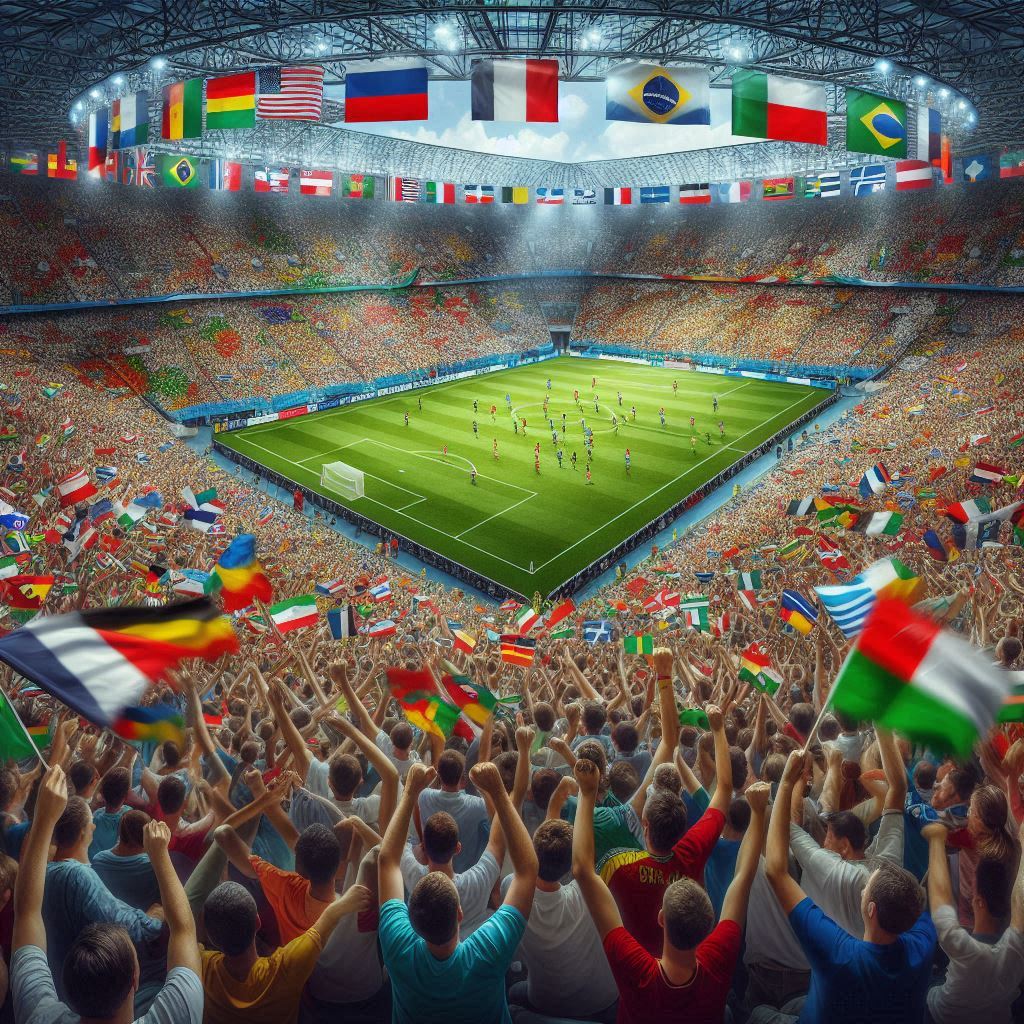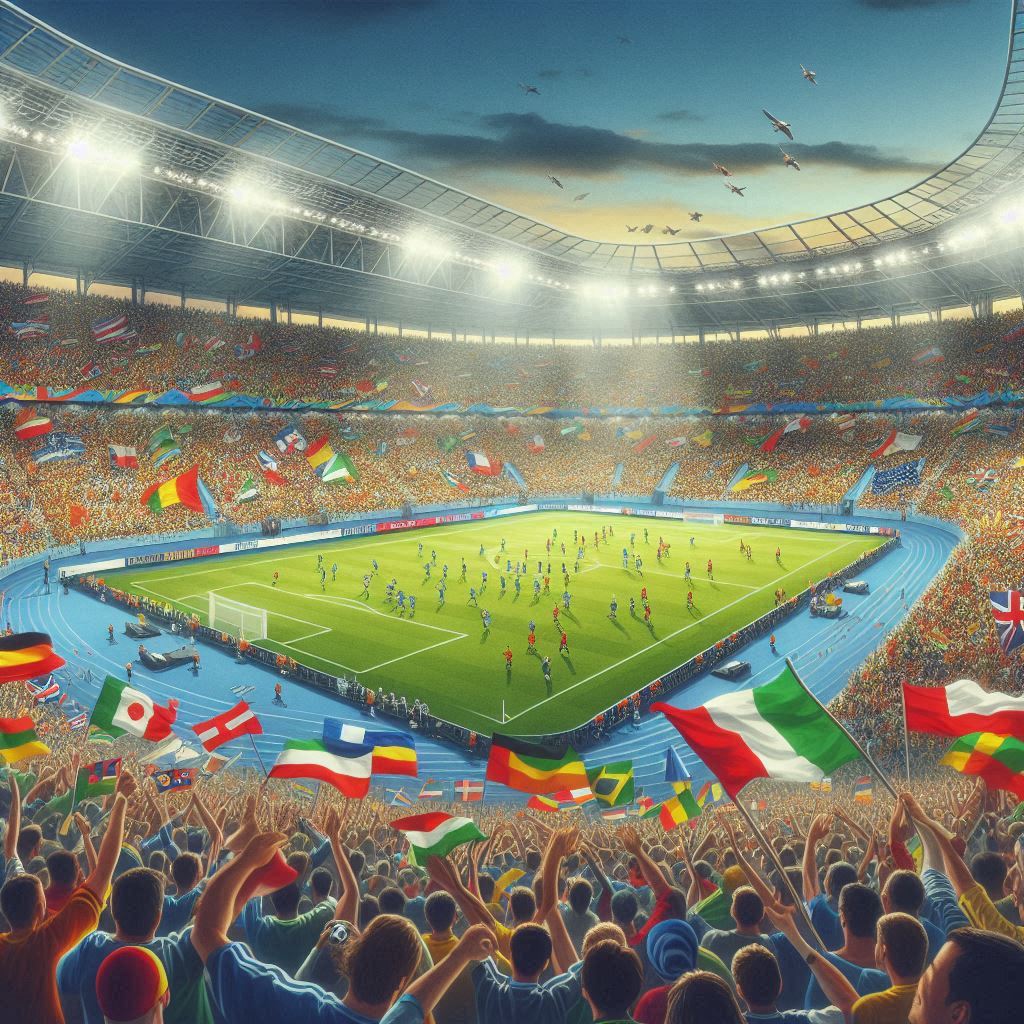The 2002 FIFA World Cup: A Historical Journey Through Uncharted Waters
The 2002 FIFA World Cup was no ordinary tournament. This was the first World Cup to be hosted by two nations—South Korea and Japan—marking the first time the event ventured into Asia. From the vibrant opening ceremony to the thrilling final match, the 2002 World Cup was filled with surprises, dramatic upsets, and moments that will forever be etched in football history. In this article, we’ll explore the tournament’s journey from start to finish, highlighting the key moments, matches, and players that made the 2002 FIFA World Cup unforgettable.
1. The Pre-Tournament Build-Up: A New Era for Football
When South Korea and Japan were awarded the hosting rights for the 2002 World Cup, it marked a significant milestone in the history of football. For the first time, the World Cup was set to be held in Asia, introducing the beautiful game to a new audience and breaking the European-South American duopoly on football’s most prestigious tournament.
The preparations for the World Cup were nothing short of monumental. Both South Korea and Japan invested heavily in infrastructure, constructing state-of-the-art stadiums and improving transportation networks. The two nations, despite being historical rivals, worked together seamlessly to ensure that the tournament would be a success.
Interesting Fact: The stadiums built for the 2002 World Cup were some of the most advanced in the world at the time, featuring retractable roofs, modern seating, and cutting-edge technology that would set new standards for future tournaments.
However, the decision to host the tournament in Asia was not without its skeptics. Many doubted whether the region could pull off such a massive event, and there were concerns about the performance of the Asian teams, who were traditionally considered underdogs on the global stage.
Humorous Moment: Before the tournament began, a Japanese TV show aired a segment where they tried to teach local fans how to pronounce the names of European players. Let’s just say, hearing “Beckham” and “Ronaldo” with a heavy Japanese accent brought some unexpected laughs!

| Nation | Key Cities | Stadiums |
|---|---|---|
| South Korea | Seoul, Busan, Daegu | Seoul World Cup Stadium, Busan Asiad Stadium |
| Japan | Yokohama, Sapporo, Osaka | International Stadium Yokohama, Sapporo Dome |
2. The Group Stage: A Series of Shocks and Surprises
As the tournament kicked off, it became clear that this World Cup was going to be full of surprises. The group stage was packed with shocking results that left fans and pundits alike scratching their heads.
The Fall of the Giants: One of the biggest shocks of the tournament was the early exit of defending champions France. Les Bleus came into the tournament as heavy favorites, but they were sent packing after failing to score a single goal in the group stage. Their campaign was a disaster, losing to Senegal in the opening match and then failing to defeat both Uruguay and Denmark.
Funny Moment: After France’s embarrassing exit, a Parisian café humorously introduced a new item on their menu: the “Zero-Goal Special”—a dish with a lot of garnish but no main course!
But it wasn’t just France that struggled. Argentina, another pre-tournament favorite, also failed to make it past the group stage. Despite a star-studded lineup that included the likes of Gabriel Batistuta and Juan Sebastián Verón, they were unable to advance, leaving their fans in a state of disbelief.
On the other hand, the tournament saw the rise of unexpected heroes. Senegal, making their World Cup debut, stunned the world with their 1-0 victory over France and went on to reach the quarter-finals. Their spirited performances captured the hearts of fans around the globe, proving that the World Cup is about more than just the traditional powerhouses.
| Group | Notable Team | Result |
|---|---|---|
| Group A | France | Eliminated (0 goals) |
| Group B | Spain | Advanced with ease |
| Group C | Brazil | Dominated the group |
3. The Knockout Rounds: Drama, Controversy, and Unforgettable Moments
As the tournament moved into the knockout rounds, the tension ramped up. The matches were fiercely contested, and the margins for error became razor-thin. It was here that the 2002 World Cup delivered some of its most dramatic moments.
South Korea’s Historic Run: Co-hosts South Korea became the Cinderella story of the tournament. After advancing from their group, they shocked the world by defeating Italy in the Round of 16. The match was filled with controversy, particularly surrounding a disallowed Italian goal and a contentious red card. South Korea went on to defeat Spain in the quarter-finals, again amid claims of questionable officiating, to become the first Asian team to reach the semi-finals.
Humorous Moment: After South Korea’s victory over Italy, a Korean fan was spotted in the stands holding a sign that read, “Sorry, Pizza is on me tonight!” The sign became an instant hit on social media.
Brazil, on the other hand, was steamrolling their way to the final, powered by the brilliance of Ronaldo, Rivaldo, and Ronaldinho. Their quarter-final match against England was a classic, with Ronaldinho scoring a memorable goal that caught England’s goalkeeper David Seaman off his line.
Germany’s Unyielding Defense: Germany quietly but effectively made their way to the final, thanks in large part to the heroics of their goalkeeper, Oliver Kahn. The German defense was rock solid, conceding just one goal in their first six matches.
4. The Final: Brazil vs. Germany – A Clash of Titans
The final match of the 2002 FIFA World Cup was a highly anticipated showdown between Brazil and Germany. Both teams had been dominant throughout the tournament, and the final was expected to be a closely fought battle. The match took place at the International Stadium Yokohama in Japan on June 30, 2002, in front of a capacity crowd of over 69,000 fans.
Brazil, known for their attacking flair and technical brilliance, came into the final with high expectations. The team, managed by Luiz Felipe Scolari, was stacked with some of the most talented players in the world, including Ronaldo, Rivaldo, Ronaldinho, and Cafu. On the other side, Germany was known for their disciplined defense and tactical organization, anchored by their world-class goalkeeper, Oliver Kahn.
Ronaldo’s Redemption: The final was especially significant for Ronaldo, who had been haunted by his mysterious collapse before the 1998 World Cup final. Four years later, Ronaldo was determined to prove himself on the world stage. He delivered a stellar performance, scoring two goals to lead Brazil to a 2-0 victory over Germany, securing Brazil’s fifth World Cup title.
5. The Aftermath: Legacy of the 2002 World Cup
The 2002 FIFA World Cup left a lasting legacy for both host nations and the global football community. South Korea’s unprecedented run to the semi-finals inspired Asian football, demonstrating that teams from the continent could compete at the highest levels. Japan and South Korea’s successful co-hosting paved the way for future joint-hosted tournaments and highlighted the importance of collaboration in organizing large-scale sporting events.
Memorable Players: The tournament showcased some of the world’s best talents. Ronaldo emerged as the top scorer, winning the Golden Shoe with 8 goals. Rivaldo and Ronaldinho also made significant impacts, solidifying their places among football’s elite.
Technological Advancements: The 2002 World Cup introduced several technological innovations, including improved broadcasting techniques and the use of advanced stadium infrastructure. These advancements enhanced the viewing experience for fans worldwide and set new standards for future tournaments.
Cultural Impact: The World Cup fostered cultural exchange and mutual respect between the host nations and participating teams. Fans from around the globe celebrated diversity, unity, and the universal love for football, making the 2002 tournament a memorable chapter in the sport’s history.
Closing Thought: The 2002 FIFA World Cup was more than just a series of matches; it was a celebration of football’s ability to bring people together, transcend boundaries, and create unforgettable memories. Its legacy continues to influence the game today, inspiring future generations of players and fans alike.

